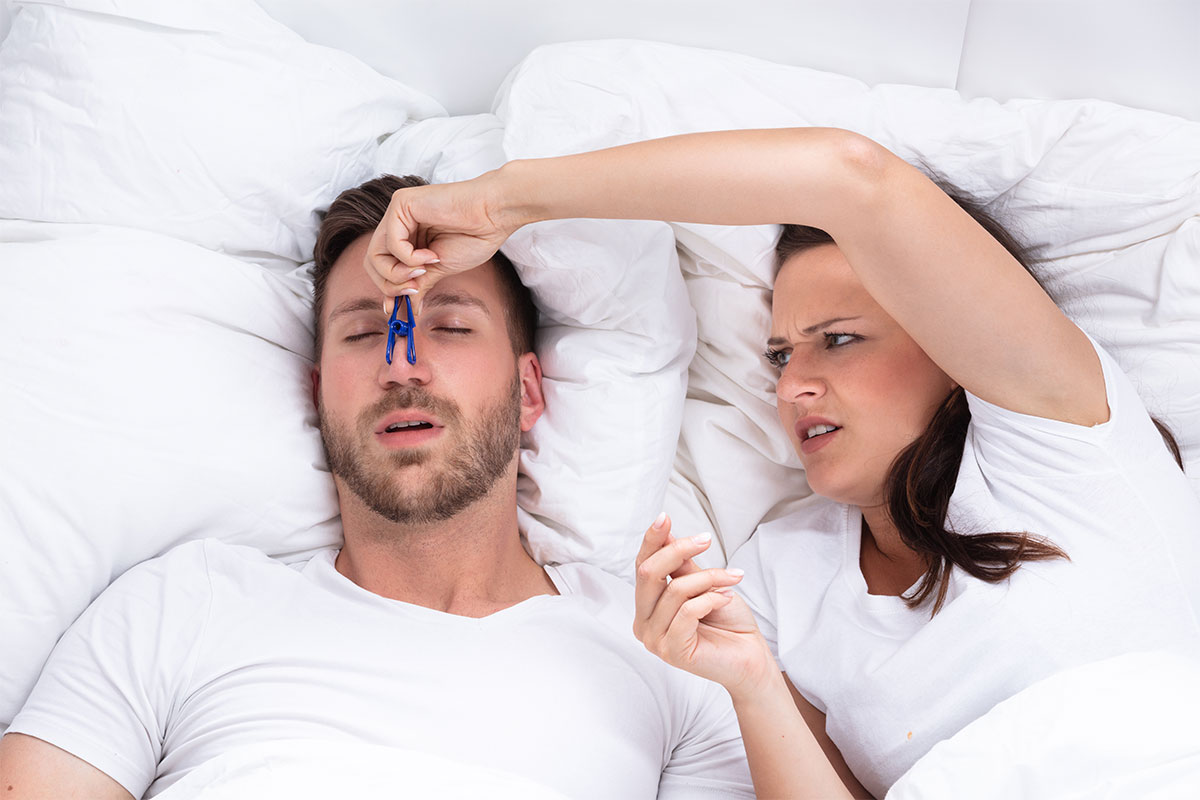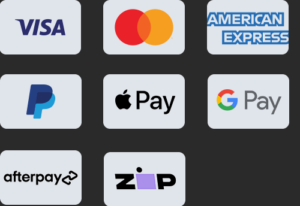
Which Snoring devices actually work?
Snoring is a strong indicator that you are not sleeping well. If you snore it’s likely your partner isn’t sleeping well either! A search online for anti-snoring devices will present an overwhelming array of snoring solutions and devices that claim to stop snoring. But how effective are these? And which are the snoring devices that work? Read More
Anti-Snoring Device: The Simple but Effective Snoring Treatment Australia Has Been Waiting For
Simple but effective: all the best ideas come in this form. They seem so obvious when you see them in action or hear them explained, that you wonder why nobody ever came up with them before. That is certainly the case with our anti-snoring device, so if you’re not familiar with it yet, prepare to be amazed at what is simply a brilliant idea.
First: Understand the Problem Without a Anti-Snoring Device
Snoring is widely regarded as a joke. We make the noise to show we’re bored with something. But snoring is not boring: it’s infuriating. And it needs to be taken seriously. It disrupts sleep, not so much for the people who do it, but for their partner and anyone else in close proximity.
Snoring places a strain on relationships and can endanger family harmony. If someone you love is keeping you awake, even if it’s completely unintentional, it can create animosity. If, as it is said, 40% of Australian men and 30% of women snore, that is a lot of stress and irritation across the country. It is an intolerable number of disturbed nights – and it is preventable. Our anti-snore device can help the problem, one snorer at a time. And here’s how.
The entirely natural, instinctive process of breathing draws air through the throat and into the lungs. That route includes the tongue, which is flexible and when we’re asleep the whole passage is liable to change shape, with what should be a perfectly adequate passageway reduced to nothing, like a fleshy tunnel collapsing temporarily. Our breathing mechanism goes right ahead with its usual process, sucking air through what is now not a space at all but a blockage. It can do it, too, but it makes a noise and that is what we call snoring.
So, how can we keep that tunnel open?
How Our Stop-Snoring Aid Works
All it takes to keep the road open, and the air moving is a tiny adjustment in the positioning of the lower jaw, and that is what our stop-snore device does. It fits comfortably and safely in the mouth and can be adjusted millimetre by millimetre until it produces the desired effect. The wearer quickly gets used to it and the problem is abated.
Contact Us for More Details About The Stop Snore Device
We realise this might all sound too good to be true, so if you would like to hear more about our snoring treatment in Australia, please give us a call. We can talk you through the idea and answer any questions you may have. Any intervention in the breathing process has to be taken seriously and if you have the sort of mind that needs details and evidence, ask away. We will be delighted to share with you the success stories our customers have enjoyed.
Alternatively, if you have heard enough and just want to get your snoring aid (or more correctly stop-snoring aid) and restore some peace and quiet to your life, go straight to our Buy Now page and place your order. What could be simpler? Read Less
What is a Snoring Device?
A snoring device is a mouthpiece or other type of device used to limit or stop you from snoring and some can also treat symptoms associated with mild to moderate sleep apnea. These come in various forms; some are extremely effective, and others are potentially a waste of your time and money.
Different Snoring Devices
- Nasal Strips – Nasal strips are affixed to the nose. They comprise of strips made of synthetic material , which – when pulled outward – spread/open the nostrils.
- Nasal Dilators – Nasal dilators are inserted into the nose, and thereby open the nose from inside. While nasal dilators may be reused over a longer period of time, nasal strips must be disposed of after a single use.
- Chin Straps – An anti-snoring chin strap is a device normally made from a flexible fabric or neoprene-type material that is placed under your chin. It wraps over your head and supports your chin, essentially keeping your mouth closed while you sleep.
- Anti-snoring Pillows – These pillows aim to align your head and shoulders to help keep your airways as open as possible, or keep you sleeping on your side (not very effective for people suffering sleep apnea).
- Vestibular Shield – a plastic device worn in the mouth to obstruct airflow and force the snorer to breathe through their nose. (This is not recommended!)
- Mandibular Advancement Device – these are worn in the mouth during sleep. They gently push the lower jaw forward to help open the airways and prevent snoring in people whose snoring arises due to vibration of the base of the tongue. The most common oral device, and least invasive treatment recommended by sleep physicians for mild to moderate sleep apnea and snoring.
- Tongue-Retaining Device – this is also worn in the mouth during sleep. It works by gripping the tongue to prevent it from relaxing and falling back into the throat, where it would otherwise block the airways. It enables mouth breathing.
- CPAP Therapy – Continuous Positive Airway Pressure, this uses a face or nose mask worn during sleep and attached to a machine that pushes air into the mouth to keep the airways open. The most common treatment recommended by sleep physicians for mild, moderate and severe sleep apnea and snoring.
Do Different Devices work for Different Types of Snoring?
There are distinctly different types of snoring – and, as you’d expect, the type of snorer you are influences which type of snoring solution will work best for you.
Your snoring may be:
- Nose-based – usually arises when breathing through the nose and is due to blocked or narrow nostrils, a deviated septum, or an obstruction within the nasal passages. It can also be caused by dust, pollen, and pet allergies, cold dry weather, and using certain medications. Nose snorers experience impaired nasal breathing when awake, a dry mouth, bad breath, and headaches on waking, and snoring makes a whistling or grunting sound.This type of snoring responds best to using antihistamines, keeping your home (especially bedroom) clear of allergens, quitting smoking, and using nasal rinses. Nasal dilators may be helpful for some people. Severely compromised anatomy may require corrective surgery.
- Mouth-based – mouth-based snoring happens when a sleeper breathes through the mouth instead of the nose. It may be caused by a blocked nose, oversized or enlarged tonsils, or weak tissues of the soft palate. Mouth snorers tend to sleep on their back (or occasionally side) and snore with an open mouth.Specially designed mandibular advancement devices like SnoreMD can help keep the mouth closed to prevent this type of snoring.
- Tongue-based – if the tongue relaxes too much, snoring can result. It’s more common when sleeping on the back and occurs more in people who are overweight (especially in the neck area), consume alcohol, or use medication to help them sleep. Tongue snorers snore only when asleep on their back and snoring is inconsistent and high in pitch. They may have a larger-than-usual tongue.Solutions for this type of snoring include anti-snoring pillows, tongue retaining devices, and mandibular advancement devices like SnoreMD.
- Throat-based – this is the loudest and most risky type of snoring. It occurs in any sleeping position and is caused by obstructive sleep apnoea (OSA), which is a serious medical condition requiring a proper diagnosis and treatment plan. It happens when the soft tissues and muscles in the throat become too relaxed and the walls of the throat collapse. This blocks the flow of air, in some cases completely, and the sleeper must gasp and wake to resume breathing. These people snore regardless of sleeping position (even when upright) and experience morning headaches, poor concentration, sleepiness, loud snoring, dry mouth on waking, and a frequent overnight need to urinate.OSA must be given immediate medical attention and is treated using CPAP therapy. Surgery may be required. Sleep physicians can also recommend mandibular advancement devices to treat people within the mild to moderate range.Some people have a combination of these factors influencing their snoring – and a multifaceted approach may be required.
Things to Consider
How to choose a snoring device that works?
You need to select what will work for you:
- It must be affordable
- It must be comfortable to use
- It must be reusable
- It must be safe to use
- It must be effective and work for your specific type of snoring
- It must be backed up by medical science
- It must not disrupt your sleep
- It must not further compromise your ability to breathe.
You need to understand what is causing your snoring before you choose your snoring device – and if you have any reason to suspect you are a throat snorer, you must seek an assessment with your GP as soon as possible.
What Works?
The right snoring device is the one that works for you – for all the reasons listed above. You may need to try a few different options before finding what best suits you.
Overall, the micro-adjustable mandibular advancement device is the most user friendly, cost effective snoring solution currently available in the market place. This is what we offer with the SnoreMD. It is clinically tested, so it’s safe to use, provides customised fitting to each individual user, ensuring effectiveness, and is comfortable, reusable, BPA free and budget-friendly.
SnoreMD – Leading Anti-Snoring Device Globally
For a clinically proven snoring device that works, look no further than SnoreMD, the Australian brand delivering healthier and peaceful night’s sleep to users all around the world.
Explore how SnoreMD can help you stop snoring and change the quality of your sleep for the better. Click here to learn more about sleeping with our FAQs or visit our news page for tips and advice relating to sleep health.
Buy SnoreMD online now or call us on 07 5370 9323.


